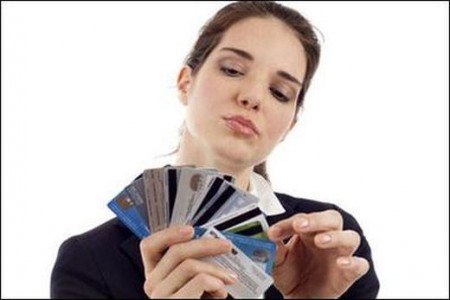Consumers should be especially vigilant during the holiday season because identity thieves out en masse. Therefore it is essential that consumers keep their debit cards on the ice, “said Beth Givens, director of the Human Rights Chamber of privacy and exchange one of the foremost experts on the nation Protecting your private information confidential.
What makes debit cards so dangerous? Givens has so many reasons, his organization has developed a comprehensive information sheet if you must use cash, credit or debit card when you shop. (The report also explains the failure of gift cards.)
Here is the short version of the dangers of speed:
1. Limit Losses
Like credit cards, federal law limits your liability for fraudulent transactions on a debit card at $ 50. But only if you notify your financial institution within two days of discovery of theft. If you are a cadet of the space and do not check your bank statements for a couple of months, you could lose everything.
2. Pay Now / Reimburse Later
If someone has fraudulently used your credit card, you do not pay the fee. But when someone has fraudulently used your debit card, money is deducted directly from your account in real time. That means you’re out of money while the bank does have a quiet examination of their records to assess your application fraud. Many consumers complained to the Privacy Rights Clearing House have said they have lost access to their funds for several weeks. In the meantime, they have been caught short and unable to pay their bills, Givens said.
3. Merchant Disputes
The same problem affects merchant disputes. If you pay with a credit card when ordering something online, and that the product is damaged, broken or not at all, you can dispute the charge and stop payment by credit card. If you used your debit card, fees are paid when you order. When you find the goods were not what was announced, the merchant has your money and you are in the unenviable position of having to fight to get your money.
4. Phantom Expenses
If you use a credit card in a hotel, the hotel makes an impression when you register, but do not charge your card until you visit. It is a very different story with a debit card. Generally, the hotels put on hold “on funds in your account for more than you spend. Yes, more. They hold the entire amount of your stay, plus an estimated amount for “false”, such as meals at the hotel restaurant and diving into the mini-bar. This is not a real charge, the hold comes off your account at the end of your stay. But it affects the available balance in your checking account anyway and can lead to overdrafts. One consumer said that these accusations phantom cost him $ 140 in overdraft fees. These takeovers are usually placed on transactions made by debit card at hotels, service stations and car rental companies.
5. Overdrafts, Overdraft and Most Found
Overdraft charges have soared in recent years and the vast majority of consumers who pay to explain their discovery is the result of a transaction by debit card. Many consumers naively that if they have insufficient funds in their accounts, their bank would not approve a slip flow. But they were wrong. The result: a $ 4 coffee could trigger an overdraft fee of $ 35. Government regulators are reigning in these costs by requiring banks to give consumers the opportunity to “opt out” of overdraft protection automatically, but that does not begin to existing accounts until August. (If you have a new account, it starts in July.)
6. Skimming
Financial scammers have obtained sophisticated in recent years and that you use “skimming” machines to read your card information and charge your account, “said Givens. When your debit card is skimmed, your bank account can be drained before you know you’ve done.
Views: 159



